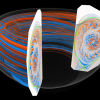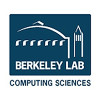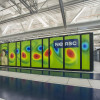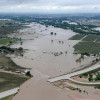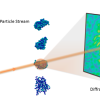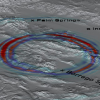News
Two CS Researchers Receive 2017 Early Career Awards
ESnet's Mariam Kiran and CRD's Lin Lin have both received 2017 Early Career Research Program awards from the Department of Energy’s Office of Science. Now in its eighth year, the award supports exceptional researchers during critical stages of their formative work by funding their research for five years. Read More »
NERSC Sims Show How Recycled Atoms Boost Plasma Turbulence
Using NERSC's Edison supercomputer, physicists at Princeton Plasma Physics Laboratory have modeled how recycled neutral atoms, which arise when hot plasma strikes a tokamak fusion reactor’s walls, increase plasma turbulence driven by what is called the “ion temperature gradient.” Read More »
New Simulations Could Help in Hunt for Massive Mergers of Neutron Stars, Black Holes
Working with an international team, Berkeley Lab scientists have developed new computer models to explore what happens when a black hole joins with a neutron star – the superdense remnant of an exploded star. Read More »
DOE User Facilities Join Forces to Tackle Biology’s Big Data
Six proposals have been selected to participate in a new partnership between NERSC and JGI, called the FICUS initiative. Researchers will leverage the expertise and capabilities available at the two facilities to explore the wealth of genomic and metagenomic data generated worldwide to accelerate discoveries. Read More »
“Hindcasting” Study Investigates the Extreme 2013 Colorado Flood
Using the Weather Research and Forecasting regional model, Berkeley Lab researchers “hindcast” the conditions that led to the Sept. 9-16, 2013 flooding around Boulder, Colo. and found that climate change attributed to human activity made the storm much more severe than would otherwise have occurred. Read More »
New Data Archive Aims to Amplify Impact of Ecosystem Research
Berkeley Lab’s Computing Sciences and Earth & Environmental Sciences Area are partnering on a three-year project to develop an archive that will serve as a repository for hundreds of DOE-funded research projects under the agency’s Environmental System Science umbrella. Read More »
New Berkeley Lab Algorithms Extract Biological Structure from Limited Data
A new Berkeley Lab algorithmic framework called multi-tiered iterative phasing (M-TIP) utilizes advanced mathematical techniques to determine 3D molecular structure of important nanoobjects like proteins and viruses from very sparse sets of noisy, single-particle data. Read More »
Will Brain-Inspired Chips Make a Dent in Science’s Big Data Problems?
Although neuromorphic computing is still in its infancy, researchers in Berkeley Lab's CRD hope that these tiny, low-power, brain-inspired computing systems could one day help alleviate some of science’s big data challenges. Read More »
Record-setting Seismic Simulations Run on NERSC’s Cori System
Record-setting seismic simulations run earlier this year on the Cori supercomputer at NERSC were the subject of two presentations at the ISC High Performance conference in Frankfurt, Germany this week. Read More »







 Instagram
Instagram YouTube
YouTube
